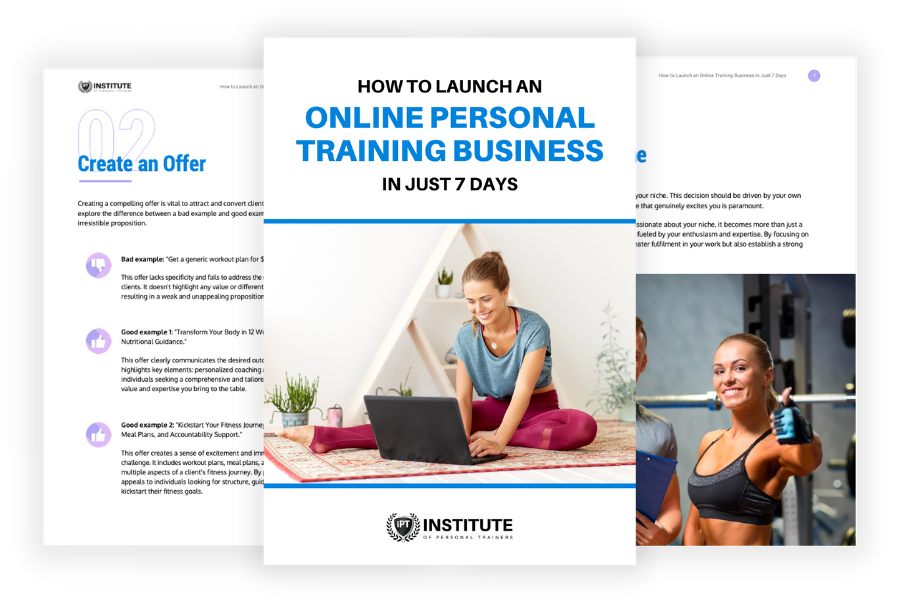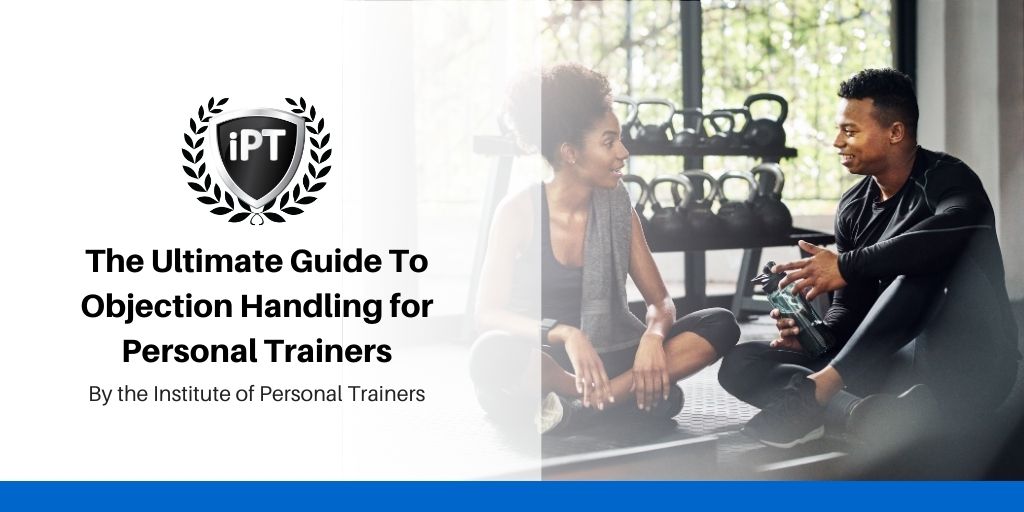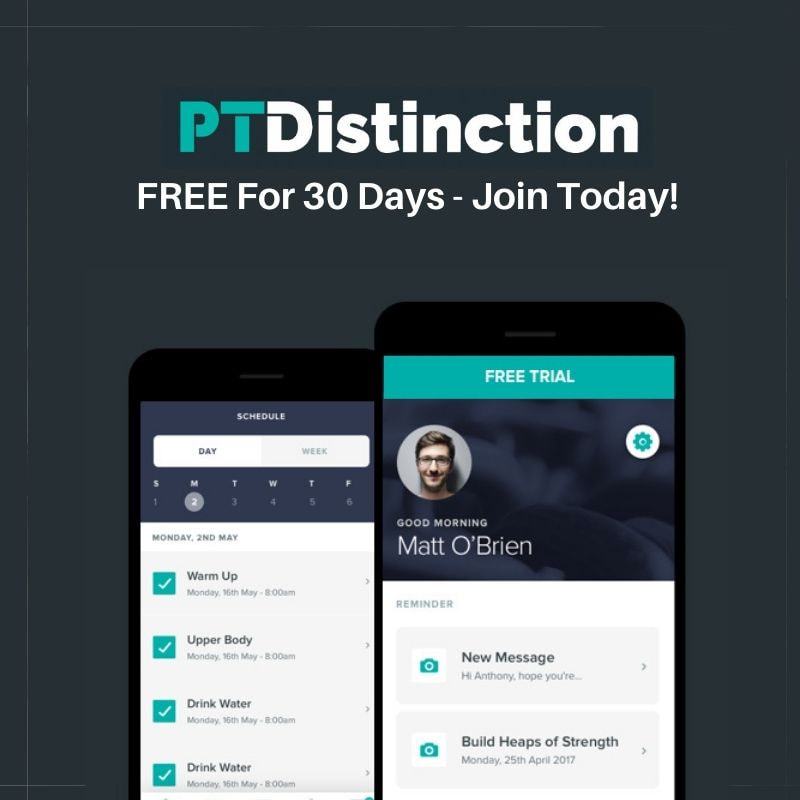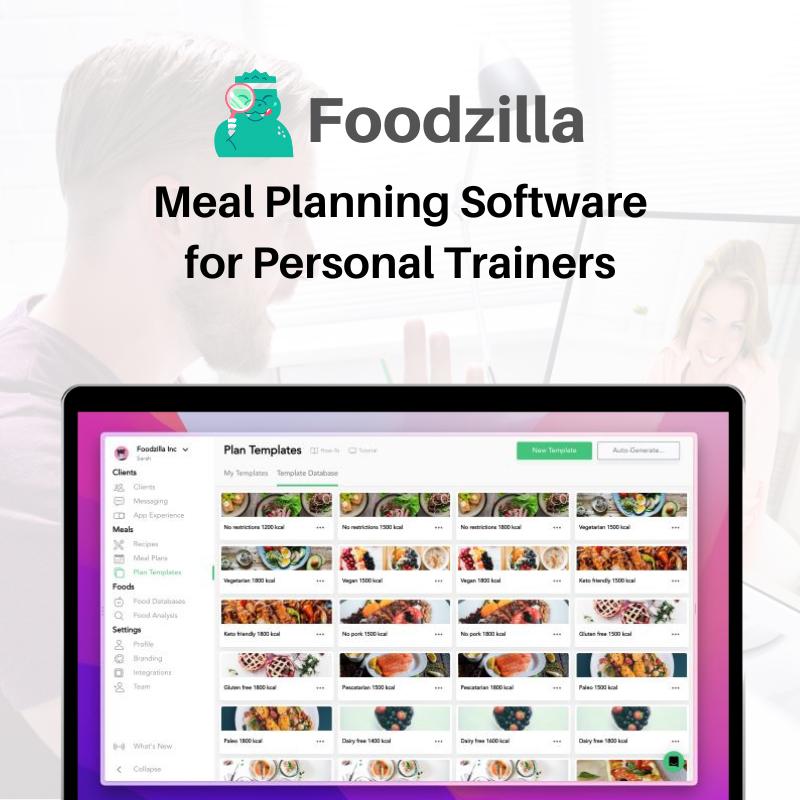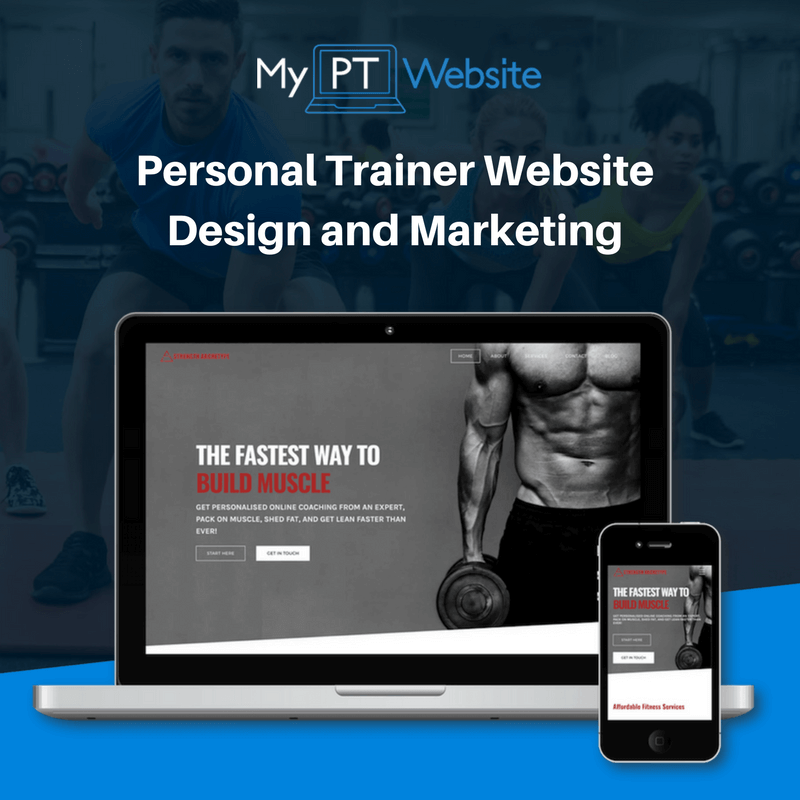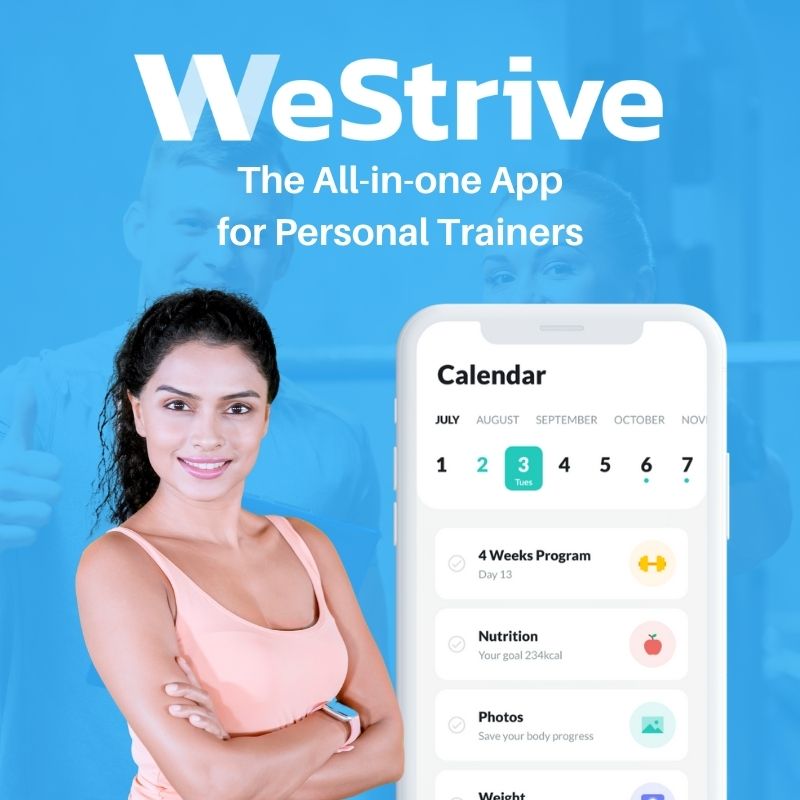|
FREE GUIDE: HOW TO LAUNCH AN ONLINE PERSONAL TRAINING BUSINESS
IN JUST 7 DAYS
✓ The new, better way of launching an online business
✓ The fastest way to create in irresistible offer ✓ A simple system to sell to clients who are interested |
|
Handling objections is an inescapable part of the process when it comes to selling your personal training services. With so many personal trainers feeling under-confident with their sales process, it’s not uncommon to hear an objection from a prospective client and think that they’re saying “no” to working with you. In fact, what they’re saying is they have a problem - a roadblock - and they’re asking you to help them overcome it This article is going to lay out some of the common objections we hear as personal trainers, and suggest some ways of handling these objections which may increase the number of sales you make. Anticipate And Minimise Objections All communications prior to the call with your prospect gives you a chance to minimise their objections. That’s every single post you make on social media, every touch-point in your messages back and forth, and even the point at which they book a call with you. It’s advisable that you have an idea of the most common objections you personally hear from your prospects so that you get really good at handling these particular problems. The more of these objections you can handle before you even get to the call, the more “pre-sold” they’ll be. That means you ring their number confident that they’re serious about getting your professional guidance, and they go into the call confident that you’re direct enough to help them to overcome their problems. In many ways, the sales or consultation call is the first opportunity to demonstrate your coaching style. Consider this: you’re on the phone call on the same side as your prospect. It’s not you trying to sell them personal training services. It’s more like you and them versus the problem that they’ve been struggling with for a long time. When you take that collaborative approach to understanding and diagnosing the issues they face, the potential client will feel they’re no longer trying to solve the problem on their own. They may still have reservations though, so let's look at 8 of the most common objecftions you'll hear as a personal trainer. Objection #1: I Need to Think About It “I need to think about it.” How many times have you heard that at the end of a consultation? When people want to say no but are too polite to actually say the word, you will hear that sentence. You can ask the person what they need to think about in a way which sounds curious rather than confrontational. And, if you’re feeling confident, asking them “Is this is a polite way of saying no without hurting my feelings?” On a call, the prospect should be saying one of two things: “Yes, I’m in!” or “No, this isn’t for me”. Both these options are absolutely fine, but a “maybe” means that you’re left in limbo, collecting no money up front and pouring effort into trying to chase them up afterwards and getting ghosted. You can set the tone of the call early by explaining to the person it won’t hurt your feelings for them to say no, and it saves a lot of awkward chasing afterwards. It also makes you sound like you’re not desperate for new clients and puts you in the lead for the conversation. It shows your prospect you won’t shy away from saying what needs to be said; which is often what they’re looking for in their personal trainer - honest, direct communication. Objection #2: I Need To Speak To My Spouse “I need to speak to my spouse first.” Another "excuse" you may have heard many times before. And this is definitely one that needs to be dealt with in your copy before they get on the call. It’s common to hear this if your coaching package is a little more expensive and there’s nothing wrong with including the partner in the conversation. You will want to make sure that you do a few things here though... Check the partner knows how unhappy the person is currently. If they’ve come to you for help to lose weight, to get more confident, to get some visible muscle definition - the partner would directly benefit from this. Happier, more energy, and massively more confident? That’s a happier marriage. Early in the call, ask "What is your support network like?" You can explain that people who do best on your programme have the full support of their families to lean into this current challenge. Often, people have struggled with the emotional element of making a change without telling their husband or wife what it means to them to make a change. This is a conversation that should happen between your prospect client and the partner before you talk to them because it makes their life much easier once they do sign up with you. And it eliminates the need to issue a refund because they didn’t talk it over first and now this has caused an argument at home. One elegant way of eliminating this objection from the sales call is to include a short questionnaire into your pre-qualifying process where ask that question: "Is there anybody else who would be part of making the decision of you joining a fitness program?" If the answer is yes, you can address it in a reply email to encourage them to talk it over with the partner ahead of the call, or invite the partner onto the call as well. If you are faced with this objection in the call, though, you can still offer your prospect a call back in a few days once they had the chance to discuss it. If they want to take it, ask them to estimate by when they would have a clearer answer. Objection #3: I Can't Afford It “I can’t afford it right now.” One of the things you can do to avoid this objection in a sales call is to display your prices on your personal trainer website. If you don’t yet have a fitness website, you can still give an estimated price range on your promotion or even on the page where your prospect books the call with you. Pre-qualifying your prospect at this stage gives them a rough idea of what they can expect to pay. "If we’re a great fit to work together, there will be an investment of between £X and £Y per. Are you able to invest in this for [your minimum term of commitment, e.g. 3 months]?” By framing this by the day, it’s easier to make a price presentation so the person reading might think “that’s less than I’d pay for my lunch” for example. By presenting a range of prices, this can take into account any discrepancies in services you may have. If you offer an upfront cost for your first (for example) 3 months coaching, explain that you like to collect an upfront payment so that “we’re both committed at the same level”. No one expects you to work for free. Should You Offer Split Payment? If the upfront payment is too much, when the prospects directly says so, you can consider offering a split pay option. The total amount paid with a split payment option is usually around 20% more than the paid in full amount. Be careful not to prompt this by offering it before they ask though, as the more money you’re able to take up front the safer and more financially secure your fitness business is. As a fitness business owner, you’re now thinking about the security of your services. Finally, as a last resort, if someone is paying for 6 months coaching, you could offer to collect that payment in 6 monthly payments. If this is still not affordable, it’s a good reminder that not everyone will be able to afford your services. At this point, you might think about providing them with a down-sell option which is more affordable for them. A point on ethical sales: Do not pressure people for money if you know it’d create financial stress for them. This is unethical and neither of you will feel good about the transaction. They will be too stressed to commit to your programme and get results anyway and you’ll end up refunding them. Objection #4: I Prefer Face to Face “I wanted in-person training instead.” This is a common objection for personal trainers that offer a mix of face to face personal training on the gym floor and online coaching. Assuming you’re at capacity with your face to face work and you’re looking to grow your online element instead, you might question why people feel like they need face to face. Solution #1. Usually, people think they need a personal trainer standing over them, keeping them motivated, and accountable to turn up at the gym. You can let them know that your face to face slots are fully booked at the moment but there is an opportunity of partnering up with someone with similar goals in a small group setting if that's something you offer and have other clients who want to enjoy the benefit of it. This can increase your earning capacity without significantly increasing your workload. The natural competitiveness and support of working out with another person can create intrinsic motivation and accountability and often your job becomes much easier. Solution #2. You could also suggest that relying on someone else for motivation is exactly what you teach them to overcome in your online coaching package. That they have probably tried face to face coaching in the past, and that you provide support and accountability in the other 23 hours of the day. You are not “just another rep counter” at the gym; you are providing the tools for people to completely change their lives. Solution #3. If the prospect isn't interested in either of those options, you can refer them to a personal trainer you know will be able to help them achieving their goals. You both leave the consultation feeling that it was successful and you never know, they may even recommend you to their friends in the future for online training. Objection #5: I Need Childcare “I don’t have anyone to look after the kids!” A genuine concern for so many parents is finding a way to share their childcare responsibilities so that they can take care of their health. Solution #1. An online coaching element could help provide the flexibility they need to work around their childcare, or even to include their children in their exercise routine. This normalisation of physical activity sets a great example. Solution #2. If you aren’t currently offering an online element to your service - and the gym you work from does not allow children in the building - you could offer sessions during the times the children are in school. You could also offer a more flexible time block; if they can’t make a full hour, could you offer a half-hour session. Solution #3. Alternatively, if there really isn't anything you can do for them, you can also point them to the direction of another trainer who has offerings that will suite their goals or are also mums with similar daily schedule. Objection #6: I Don't Have Time “I struggle to find time for myself.” This is similar to the objection above. Online flexibility could be the solution for these people, but if this isn’t possible right now, shorter, more flexible sessions could be the answer. Working exercise around times when they’d be out of the house anyway - right before or right after the working day or squeezed into a lunch hour. If there’s a deeper issue here around the mindset of being selfish when prioritising their own needs, don’t be afraid to ask. “It’s common for a lot of my clients to feel like they’re being selfish when they take time out for themselves. Who would benefit if you were operating at your best?” This changes the perspective to how they are actually helping the people closest to them by being healthier, having more energy, and more confidence. They may even be setting an example. Get specific here, and use people’s names. It’s a lot easier to make a buying decision when you feel like you’re doing it for the good of someone else. Objection #7: I'll Wait “Now isn’t a good time. I’ll wait until [some date in the future].” Chances are they’ve been telling themselves this for a while. Waiting until Monday. Waiting until January. This is one to manage before they get on the phone, and you can pre-empt this objection with a little bit of flattery. “I’ve spoken to a lot of people this week that have been putting off making a change; they’re pushing it back to the new year, or next month - and before we really get started today, I just wanted to congratulate you on even being here at all. The fact that you’re willing to talk to me today, and not put things off any longer tells me just how serious you are about creating change. So even if we don’t end up being a good fit for each other, I just wanted to say how much I respect you for taking action now.” Summing Up Knowing your common objections and having a response ready for them is part of the sales process. Hearing an objection doesn’t mean it’s a “no” from the person today - they just see that there’s a problem and if you can stay calm and offer a logical solution, they’ll go with it.
Not everyone is going to become a client of yours, and that’s okay. You’re simply having a conversation with someone to understand their world, the challenges they’re facing, to see if you’re the right person to help them overcome their problem. If this conversation comes from an authentic place of listening and wanting to really help, it’s not sleazy at all and there’s no reason to feel bad about handling objections on sales calls. |
Our All In One Platform
Check out out all in one business & marketing platform for personal trainers!
WEBSITE BUILDER | FUNNELS |MEMBERSHIPS | SCHEDULING| EMAIL MARKETING| PAYMENTS| CRM | AI ASSISTANT | SURVEYS
Popular Articles
Trusted Partners
We work closely with some of the best service providers in the fitness industry.
Categories
All
|

